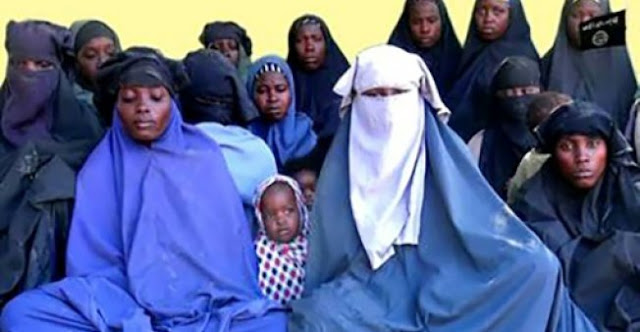A jihadi of the Boko Haram group of Nigeria was sentenced to 15 years in prison for participating in 2014 in the kidnapping of more than 200 schoolgirls in Shibok, northeastern Nigeria, the Justice Ministry announced Tuesday.
The verdict against Harun Yahya, 35, was the first on the mass abduction of the Shibook girls, which sparked international outrage, sparking a global campaign to free the girls.
In April 2014, 219 girls between the ages of 12 and 17 were abducted while they were taking exams in Shibok, northeast Nigeria, where attacks by the jihadi group were taking place. Their abduction caused a wave of global sympathy for social networks in the context of the "Bring Our Girls Back Home."
Since then, 107 girls have been returned or exchanged, after negotiations with the government. In early January, a number of them appeared in a video broadcast by the group, saying that they would not return to their homes and that they did not want to leave the "caliphate".
"A member of Boko Haram who was among the people who abducted the Shibuk girls was sentenced to 15 years in prison," Justice Ministry spokesman Saleh Issah told AFP, during hearings at the Kaenji court, which began Monday to try the rebels.
Harun Yahya, 35, was "handicapped", paralyzed by hand and leg. He pleaded guilty but asked clemency for judges because he was "forced to join" the jihadist group.
However, the Kainji court ruled that "he had the option of not taking part in the activities of Boko Haram," Isah said, and issued a harsh prison sentence.
Hundreds of presumed members of Nigeria's Boko Haram Jihadi group began appearing Monday in a court at a military base in central Nigeria's Kajengi to determine whether they would be tried, innocent or sent to rehabilitation centers.
- Mandatory recruitment!
Boko used haram as a weapon in her quest for an Islamic state in northeastern Nigeria and detained thousands of women, girls and men capable of carrying arms.
"Getting involved with Boko Haram is not necessarily voluntary, but it's hard to prove," said Jan San-Pierre of the modern security advisory group on terrorism.
The presence of boys in the extremist group is indicative of coercion, but others from poor areas may be involved in the group for economic reasons.
A total of 468 defendants were released last year out of 1669 detained in Kaenge, suspected of belonging to Boko Haram, 45 were sentenced to two to 15 years in prison, 82 were convicted for lesser sentences or released, taking into account their time in detention .
Esah said two people were sentenced to prison terms of between three and five years.
After all the cases in Kainge have been settled, the court will move to the Iowa barracks in the capital of Borno state, Maiduguri, to try 651 suspects detained there.
The Nigerian government initially banned the media and the public from attending the trials, sparking criticism from the United Nations and rights groups around the world.
But in the second phase of the trials, the military base was opened to civil society organizations, some of which are concerned with human rights.
The Nigerian army has been accused of arbitrarily arresting civilians and detaining them for years without access to lawyers. Prisons also suffer from overcrowding and lack of hygiene. There are allegations of torture of detainees and extrajudicial executions.
San-Pierre said questions remained about the credibility of Nigeria's judicial system and that "one trial will not change years of abuse."
Since 2009, the conflict with Boko Haram has killed at least 20,000 people, displaced 2.6 million people in Nigeria and abducted thousands more.










